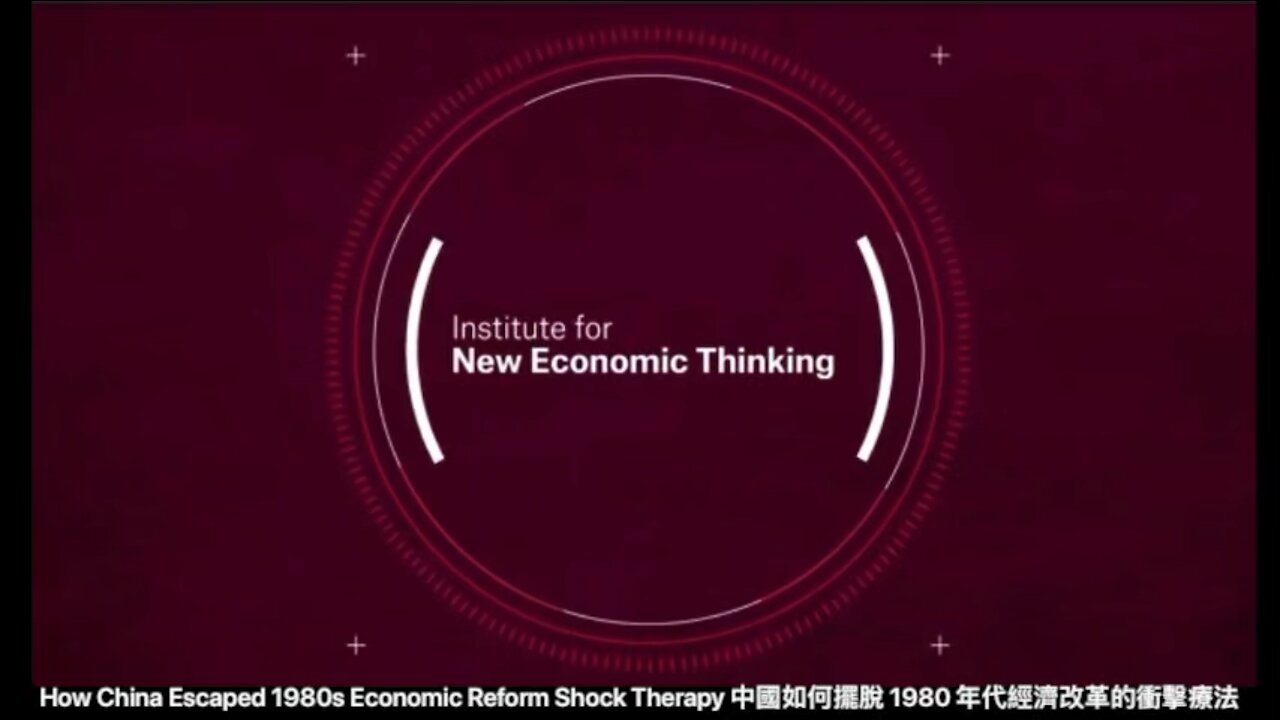Premium Only Content

How China Escaped 1980s Economic Reform Shock Therapy
How China Escaped 1980s Economic Reform Shock Therapy 中國如何擺脫 1980 年代經濟改革的衝擊療法
A story spanning thousands of years, there is far more to China's market reformation than many Western scholars might have you believe.
Isabella Weber (UMass Amherst) discusses her new book on how China managed its transition from central planning to markets economy
China has become deeply integrated into the world economy. Yet, gradual marketization has facilitated the country’s rise without leading to its wholesale assimilation to global neoliberalism. This book uncovers the fierce contest about economic reforms that shaped China’s path. In the first post-Mao decade, China’s reformers were sharply divided. They agreed that China had to reform its economic system and move toward more marketization—but struggled over how to go about it. Should China destroy the core of the socialist system through shock therapy, or should it use the institutions of the planned economy as market creators? With hindsight, the historical record proves the high stakes behind the question: China embarked on an economic expansion commonly described as unprecedented in scope and pace, whereas Russia’s economy collapsed under shock therapy. Based on extensive research, including interviews with key Chinese and international participants and World Bank officials as well as insights gleaned from unpublished documents, the book charts the debate that ultimately enabled China to follow a path to gradual reindustrialization. Beyond shedding light on the crossroads of the 1980s, it reveals the intellectual foundations of state-market relations in reform-era China through a longue durée lens. Overall, the book delivers an original perspective on China’s economic model and its continuing contestations from within and from without.
-
 10:03
10:03
Tundra Tactical
9 hours ago $12.42 earnedBrandon Herrera Vies Bid for ATF Director!
64.7K13 -
 22:01
22:01
DeVory Darkins
1 day ago $31.20 earnedHakeem Jeffries SHUTS DOWN The View as Matt Gaetz Speaks out
57.3K103 -
 2:02:54
2:02:54
Mally_Mouse
8 hours agoLet's Play!! - Spicy Saturday
40.3K1 -
 1:33:06
1:33:06
Slightly Offensive
9 hours ago $25.09 earnedAre You Ready for What's Coming Next? | Just Chatting Chill Stream
59.1K39 -
 32:10
32:10
MYLUNCHBREAK CHANNEL PAGE
1 day agoThe Gate of All Nations
134K59 -
 13:07
13:07
Sideserf Cake Studio
13 hours ago $3.17 earnedIS THIS THE MOST REALISTIC SUSHI CAKE EVER MADE?
54.1K4 -
 21:08
21:08
Clownfish TV
1 day agoElon Musk Tells WotC to BURN IN HELL for Erasing Gary Gygax from DnD!
42.6K15 -
 48:22
48:22
PMG
9 hours ago $9.20 earned"IRS Whistleblowers Speak Out on Biden Family with Mel K In-Studio"
35.3K24 -
 2:59
2:59
BIG NEM
11 hours agoLost in the Wrong Hood: Who Do I Check In With?
27.7K2 -
 1:29:32
1:29:32
I_Came_With_Fire_Podcast
21 hours ago"UFOs, Nukes, & Secrecy: Bob Salas on the 1967 Malmstrom Incident, UAPs, & Disclosure"
139K28